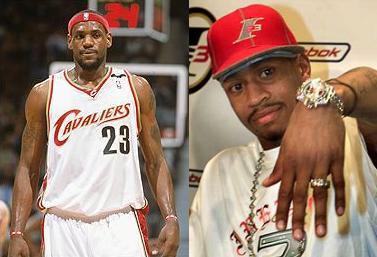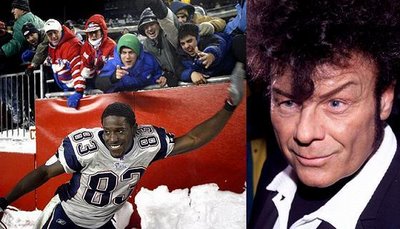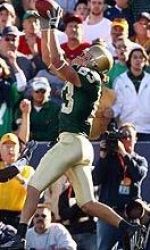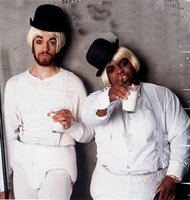I'm 35, and I've been working since I was 13. In that time, I have had bad bosses, good bosses, and one great boss. I've also been a boss and read a lot about management, leadership, etc. Does this make me an expert on this? Nah. Yet, when I talk about what separates a bad boss from a good boss, everyone tells me I get it right. It must be my relentlessly analytical nature.
So, what are the signs of a bad boss? Here's a list:
1. Bad bosses lose good people on a regular basis.
This is because bad bosses don't know how to manage. To make up for their ineptitude, they take their star performers and work them into oblivion. The result is massive turnover of good people while bad people accumulate. The only thing that keeps a bad manager afloat is the sheer luck of hiring a few new unsuspecting star performers who become fodder. A good manager reverses this pattern. He or she will retain good people while eliminating poor performers.
2. Bad bosses make everything personal.
The employer/employee relationship is a business relationship. This calls for a certain amount of professionalism. Like it or not, management means making hard choices or telling people things they don't like to hear. It also means tolerating people you might not like on a personal level but produce exceptionally well on a professional level. A bad boss can't deal with this. He has no concept of what it means to be professional. The result is that he will often cut his own throat by alienating or even firing a star performer for personal reasons while tolerating dirtbags simply because he likes them.
I can understand why bad bosses do this sort of thing. They don't want to be cold and impersonal. But I would rather work for a cold and calculating boss with an eye on the bottom line than for a person whose feelings or moods might lead him to fire me. I can't count how many times I have seen managers make clusterfuck decisions because they let their feelings get in the way of their good judgment. In addition, these bad managers are prey for the Machiavellians who use "friendship" as a means of advancement as opposed to merit. The result is a lot of office politics, betrayal, and even paranoia. Yet, all of this could be eliminated by an appraisal of objective facts. If an employee produces you reward and retain them. If they don't, you get rid of them. This may seem cold, but it is fair.
3. Bad bosses threaten and punish.
If you feel like you are back in grade school while on the job, you are working for a bad boss. I must admit that this was a mistake that I made but corrected. For some reason, new managers believe that what a business needs to succeed is heavy doses of discipline. Hell, even bellyaching employees think this is what is needed. I don't think there has been a day that has gone by on any job that I've had where someone didn't say, "They need to crack the whip around here."
Folks, I have cracked the whip, and it doesn't work. In fact, it makes you look stupid, and people lose respect for you. These methods might work in the military or prison, but they do not work in the business world. That is because people have the option of quitting, and they often go on to find better jobs because you motivated them to go find them instead of remaining in the comfort zone of their present job.
My advice to managers is to remove the threat of termination from their toolbox. Threatening to fire someone or write them up makes about as much sense as telling your wife you will divorce her if she doesn't cook dinner tonight. You might get what you want in the short term, but you will have fucked yourself in the long term.
Now, don't get me wrong. There are times when you have to fire people or at least write them up in order to eventually fire them because of stupid labor laws and the threat of litigation (a topic for another post.) But in those instances, you should just do it. Don't wave the big gun around. Pull the trigger. Remember, you should never threaten because threats imply a trade. Do this, and I won't do this. But it behooves the manager to not get caught in this scenario. This is not the way to relate to employees. It is a business relationship not a power relationship. You fire because it makes financial sense to do so.
4. Bad bosses use bribes.
I've already discussed the stick, so I might as well discuss the carrot. I've seen some bosses take the opposite tack and try to bribe people into doing the jobs they are paid to do in the first place. These bribes may be real or imaginary. Extra cash bonuses, contests, and the like have no place in business. That is because employees are already paid to do their jobs. I've never seen where more pay has ever made an employee do a better job. There are superstar athletes who make millions every year and are still worthless lazy pieces of shit.
When it comes to motivating people, I have found a universal truth. You really can't make people do anything. But I have also found another truth. There are always those willing to do what it takes. I can only speak for myself, but what really motivates me as a worker is simply the pleasure of doing the job. It is a mixture of pride and intellectual amusement. I really like working. The only time I don't like work is when I am doing a job that has no point or which I am no good at. Ask me to sit in a room and idle or paint the Mona Lisa, and I will find a way not to do it. I tend to prefer something slightly above my skill level but which I can attain. It's no different than playing a videogame or solving a puzzle. In short, I do these things because it is fun.
I don't know if other people are motivated by the same things I am. I suspect that they aren't. But I have found that people respond poorly to external motivators like bribes or threats. Instead, they follow their own internal motivations, and a good manager merely reaps what he has not sown. If left to themselves, good workers will perform more and better while bad workers eventually fire themselves because they can't even be bothered to leave their beds. A good manager can supercharge this natural phenomenon by retaining and recruiting the good while eliminating the bad. But even if he leaves well enough alone, it will work itself out. I have seen areas improve dramatically in the "vacuum" when a bad manager leaves.
5. Bad bosses are intolerant of candor.
I have had one great boss, and the one thing I notice while working for him was how much trash talking everyone who worked for him did. It didn't take long for me to fall into the habits and mores of his group and do my own trash talking. We talked trash to the boss, and he talked trash back, too. Plus, we talked trash to each other. The only thing we respected was merit, and we ruled. But if you sucked, you were going to hear about it.
I don't believe in punishing people, but I will tell them if they suck or not. Honesty can sting at times, but it is essential to good management. Good managers tolerate this honesty. This doesn't mean tolerating racial or sexual insults or any of that. But it means letting people know where they stand. This is the philosophy of former GE CEO Jack Welch who was no slouch in the management department. His no bullshit style made GE one of the greatest companies in America for the last two decades. And the man is honest with himself. He will tell you of his own mistakes. The man has no sacred cows.
Bad managers are always caught up in issues of respect. They make employees fearful to speak their minds. This goes back to making business personal. But the cornerstone of an effective enterprise is relentless honesty. You can never go wrong with having a rigorous fidelity to the truth. In addition, you will find that people don't lie to you anymore because you can handle the truth.
I have found the best way to encourage candor is to be self-deprecating. Don't take yourself too seriously. If you can be honest with yourself, others will do the same. That's because you have no pride to offend. The irony is that you will take pride in this. As I like to say, I never brag. I'm the most modest man I know. Heh heh. . .
6. Bad bosses lose sight of the bottom line.
As my final point, I have to say that bad managers simply have no clue about what a business is all about. In these days of corporate mission statements, "core values," self-actualization, tolerance, and giving back to the community, some managers seem to have forgotten the chief and only purpose of business which is TO MAKE MONEY.
A business is not a charity. It exists to make money for the owner or owners of that business. Yet, in these days of neo-Marxist claptrap, people seem to have lost sight of this as if there is something immoral about capitalism. There isn't. Making money and being moral are not antithetical. In fact, they are joined at the hip. The only moral duties of a manager is to make money for the company. By doing this, he will have served everyone's best interests including his own. And if you're some leftist shithead, I can tell you that you don't make money by defrauding the public or fucking over your employees. Remember, Enron went bankrupt.
Because I am a capitalist, I treat customers as well as I possibly can. Hell, I lick their asses. And why do I do this? Because I want their money. The same applies to workers. I treat good workers well because they make money for me. I get rid of the bad workers because they lose money for me. And as an employee, I work hard because I want to make money, and I find I get more opportunities to make money as a result.
Don't get me wrong. Money isn't everything. There are some things I won't do for any amount of money. There are other things I pay to do which look suspiciously like work. But I believe in money because money is what keeps the system honest. And as much as I enjoy working, I still won't do it for free. I expect to get paid, and I see nothing wrong with this. But for that pay, I guarantee to produce value for the dollar. To do less is to be a thief.
My best advice for being a good manager is to be a good capitalist. Do what is in your long term financial self-interest and expect others to do the same. This is moral and right. Plus, it gives an objective yardstick by which to measure the worth of an employee beyond your whims and feelings. No one has the moral obligation to pay someone to not work or to work for someone without pay. As for the worth of a person's work, this is determined by the only mechanism that matters--the market. People are always free to seek a better deal elsewhere. This applies to both employee and employer.
In the way of a conclusion, there are other things bad bosses do that I can point out. But these are the ones I find most universal. At this stage of the game, I just focus on being a good employee and try to keep in mind that the boss is the one the owner chose to put in that position. As I like to say, the customer is always right. On the flipside, I have heard a lot of complaints from coworkers over the years about this, that, and the other, but most of it amounted to a lot of whining about comfort issues and not much else. I have personally learned to discount any sort of business advice or bellyaching unless it relates to making money for the company.
 Larry Brown has decided to file a grievance concerning whether he is owed any money by the Knicks in connection with his termination. It was not a surprise when the Knicks concocted an excuse to avoid paying Brown. As I pointed out here, MSG is (owned by) a publicly traded company and may have feared a lawsuit by shareholders if it paid Brown the full value of his contract.
Larry Brown has decided to file a grievance concerning whether he is owed any money by the Knicks in connection with his termination. It was not a surprise when the Knicks concocted an excuse to avoid paying Brown. As I pointed out here, MSG is (owned by) a publicly traded company and may have feared a lawsuit by shareholders if it paid Brown the full value of his contract.
























